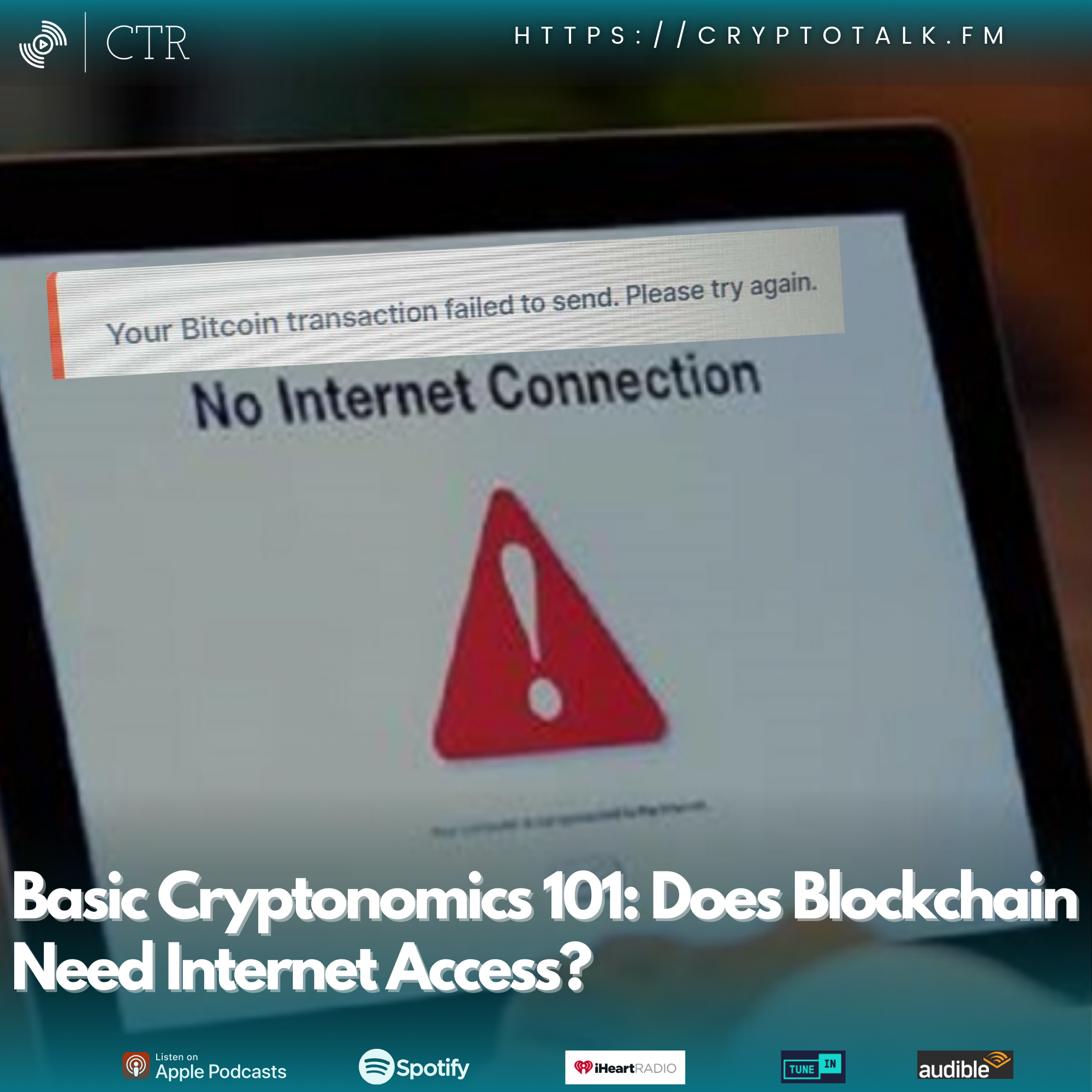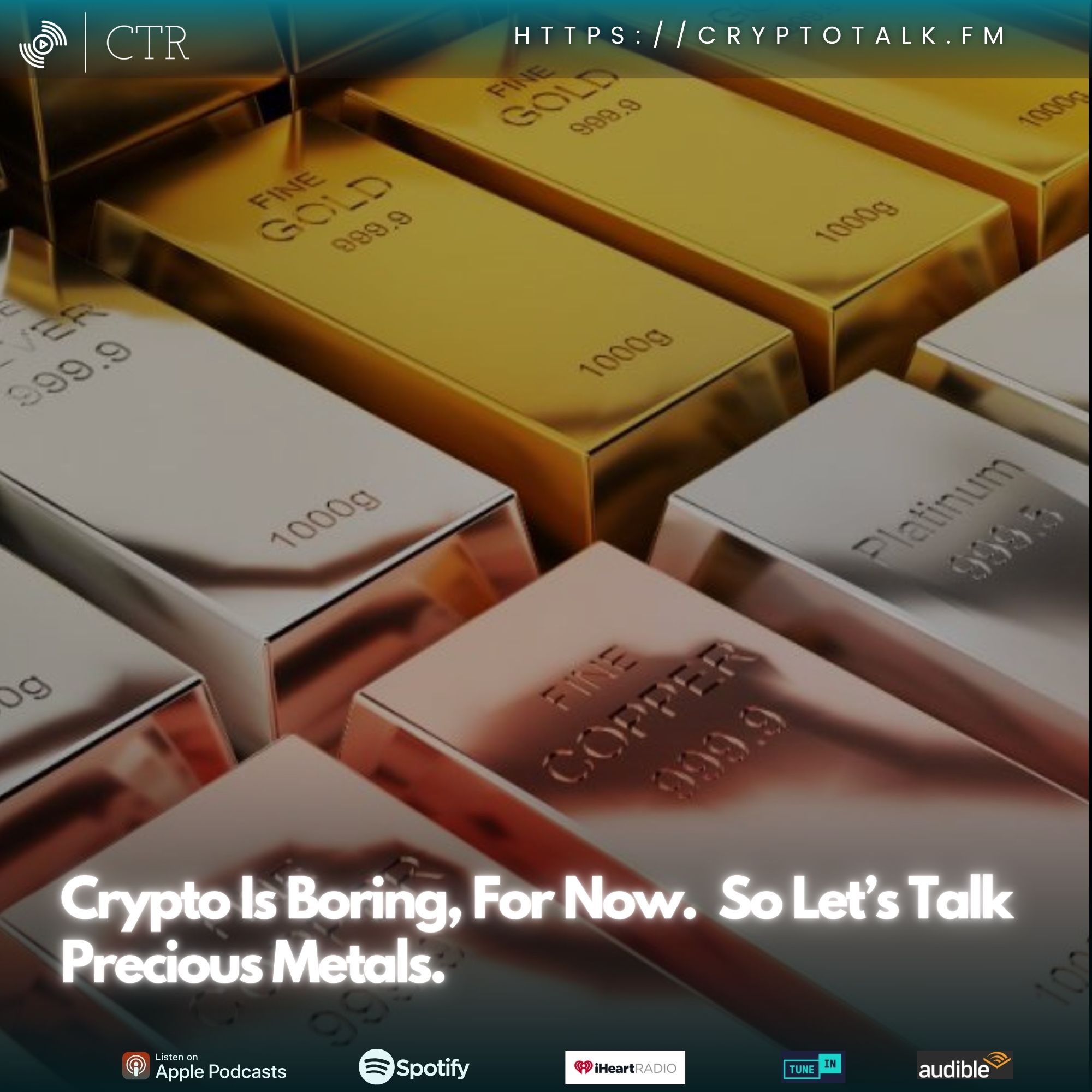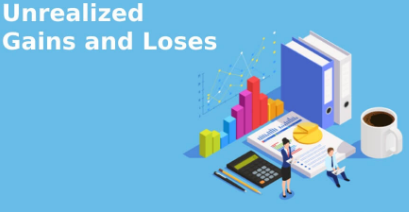[00:00:01] Speaker A: Welcome to Crypto Talk Radio, the podcast for everyday investors like you. Visit us on the
[email protected] and now here's your host, Leister.
[00:00:13] Speaker B: Thank you for that, Bailey. And welcome everybody out there in Crypto Talk radio
[email protected] it is quite boring, quite dull, quite slow, quite uninteresting, and I think today the episode will be a little bit shorter. I have to get back to this chaos on my side. Non crypto related, but welcome again.
I am going to be talking about a couple topics, educational topics. It'll be another 101 because it's boring. Cryptocurrency is boring. I think it's good that it's boring, but I'm starting to realize things are turning out just like I predicted would be the truth. And I am taking a victory lap.
So I'll talk about that.
I'm going to share my thoughts on a very controversial topic, that being the Fed and the rate cut in the future.
And then I'll round it out with our 101. And our 101 is going to center around a fundamental gap or risk. I'll say with cryptocurrency, I'm gonna sprinkle in just a pinch, a dash of real metals because I think it's important. If you haven't been watching the price, you should because lifestyle was telling you the truth for so many months now.
And I'll. I'll do the best I can, but because it's so boring out there, I may not be talking about what you might want to talk about because you might want to talk about some garbage token. And I'll apologize, but I'm not doing it. I want to keep it on straight and narrow because I think it's important and enriching for you and everyone else.
CoinDesk.com we're going to Zoom out to the month chart and we might as well start with bitcoin.
Over the past month, bitcoin was in that middling range. And then of course, recently it took a little bit of a dump. Currently hovering around the 112,000 mark. Ish. As I record this over the past 24 hours, that's where it was on the low end. So we're on the low end of it. It got as high as 113, nowhere near the 120 that we had a couple weeks ago.
So middling, but trending downward. I'll talk about in a little bit why there were some theories as to what was happening. A theory of Course currently about just shy of 4,200 bucks. That was its low and then the high was about just over $4,200. So it's, it's not doing as bad as bitcoin was. Bitcoin suffered, suffered greatly.
And some people speculated around what was happening and that some of the mentions coming from the, the feds contributed to some of the downturn. So the, the speculation, the rumor and innuendo, some of the comments that were made was around the job market overall, the economy being kind of a fragile state, inflation kind of uncertain.
And there's speculation there was going to be some more cuts. So we had a cut of 0.25, speculation there's going to be more cuts.
The policy being neutral, which means that they're not quote, bullish, right? They're not in a positive direction. They're not yet negative. They don't know what's really going to happen.
And they're thinking that the tariffs, it seems like there may be some price impact, negative price impact as a result of terrorists. Obviously that's somewhat offset by the amount of revenue brought in, but there's still an impact. I, I can talk directly to some of this.
So one of the major distributors, shipping distributors, logistics out of Japan completely stopped all their shipments to the United States. Just stopped it, just shut it down.
So there still can be shipments to the United States, but you have to use one of the more expensive carriers. Now there's three main avenues for this. There's by boat and then things take like months to arrive. There's this carriage or pan post I believe it's called, and they just completely said we're not doing any deliveries to the United States till further notice, till we figure out this whole tariff thing that came because initially the threshold was anything over 800 bucks was kind of fair game and they, you were exempt from tariffs. Recently the terrorists changed to where even stuff under 800 was being subject to the tariff. And that just completely ground everything to a halt. And as I record this, I'm pretty sure that it has not been resolved.
So anything that's being shipped to the United States via this method, and there's a lot of impact to that, right? There's gaming impact, there's a collectibles impacts, etc.
Everything is downstream.
Ebay would be impacted because a lot of the, a lot of the ebay sellers are from Japan. So consider when you think tariffs, it's not just the price you pay for something because you might pay the same price, but you can't Even get the item that leads to third carrier, which is basically FedEx. And FedEx is egregiously expensive. You might say, hey, I got, you know, I paid 200 bucks for this thing and the FedEx is another 200 bucks because it's FedEx. So there's a price impact now not on the price of the product but by way of just getting it shipped to you might cause an increase, significant increase in the price. And so if you have people that live overseas, you could be affected, et cetera.
So what they're, the Feds are talking about something like that, that they don't know what really the full domino effect is of the tariffs. And as a result they're not as confident in the stability of the market or the stability of the job market because obviously jobs will be impacted. If they're not able to get those, you know, shipments back on track and the terrorists continue to impact, then the jobs might be at risk because you don't need as many people doing the logistics part of things. So that's what's causing a lot of the negative sentiment recently was all of these statements were causing some skepticism. And I said that the price cut, you know, this smaller price cut I didn't think was gonna have a significant impact, but it should have a positive. But that's based on a long term sentiment. It's an overtime long term and everything kind of has to re reset itself. But that was also prior to the idea that tariffs would apply to those low dollar items which was not part of the initial plan.
If it's going to stay part of that plan, everything's got a re level. Either Japan Post has to be put back and just say we're just going to deal with it or some of these providers are going to stop relying on Japan Post for their shipments. And I don't know what that means. Right.
So keep an eye on that because I think it's going to impact your bag no matter what you're invested in. But bitcoin certainly is going to be at the top that list. Just because a lot of the bitcoin folks, you know, they're going to sell, I'm talking the middle tier, not your low retailers, not your big institutions, but your middle tier that would have sold anyway.
They're going to sell out because they're going to hedge, they're going to go to stable rich rare metals etc because they, they're not sure just like the Feds and they're kind of waiting it out.
They're going to people to Gamble, they're going to short and they're going to see, okay, we think it's going to go down past, you know, down to hundreds, say 100 grand.
It's worth watching. I can't tell you which way is going to go, but it's absolutely worth watching because ultimately everything circles around what the Feds are going to do and then sentiment plays a factor in that and then all the downstream impacts are going to have possibly a domino effect. And this might be the open door for going down to the 80 grand that I predicted earlier.
Trump. The Trump family issued World Liberty Financial. The organization is going to be issuing a debit card, allegedly and an application.
The plan is that they're going to take their, I think it's a WLD1 or WLF1 or whatever it is, stablecoin, tie it to a debit card to be able to spend it at retail, you know, just like other things like Coinbase, etc. But they're gonna do it around their own stablecoin. Now, since this is in the United States, it lends kind of credibility to the idea that you won't have to jump through hoops to be able to get in on this like you would do with a Coinbase or something.
I don't really know for sure, but it's another avenue for normalizing access to cryptocurrency and being able to spend it on a routine basis. Obviously there's going to have to be a framework set up. They're apparently partnering with another organization, bit them but that has not been finalized. But the thought is to try to push more into peer to peer, push more into consumers, get more on board with it and then you got to see for the main World Liberty Financial Token what its price impact is going to be. Given all the negative pressure on Ethereum, BNB is running, but Ethereum still is the core of the World Liberty Financial Token. So we have to see what that negative pressure does to the price.
Does it have an impact or not? So far, World Liberty Financial and the Trump Token have not came out of this, come out of this very strong. So we don't know if it's going to in the big picture and we don't know if this is going to make any bit of damn difference. I can't answer that question for you now. Let's talk our 101 and we'll wrap up. Like I said, this is going to be a very brief episode simply because it's boring and I think it's good. It's boring but it's still boring.
A question came up and it's a valid question and the answer might surprise you.
In order to answer the question, I'm gonna have to give a little bit more information and explain how things all work and then you can kind of picture in your mind if you're younger, some of this is going to be foreign to you. And I encourage you to do some searching about these terms that I'm going to share.
But the question came up about reliance on the Internet. Cryptocurrency, blockchain technologies, do they require the Internet?
What happens if we don't have Internet? It may be hard for you to imagine a world where we don't have Internet. See, I'm one of the old schoolers. I understand that it's very easy for us to lose Internet. When you understand what that means Internet, you realize that it's nothing more than a bunch of cables buried, not buried, but at the bottom of a large body of water. And said cable can be easily cut, as has happened in international shores.
So since. And that's the backbone, right? So if that backbone gets cut, certain regions will lose Internet access, especially because there's. It's a centralized thing. Even your mobile phone that has your 5G's is still going on the same backbone called level threes.
These backbones, they have redundancy built in, but they still can go down. Plus those Internet providers, they still rely on power, electricity, many of them have like generators. They'll use renewable stuffs and things to try to keep things running.
Ultimately they're still subject to the rules of if there's an outage for a period of time, an extended period of time, you're going to lose your access. My one of my Internet providers that I use for my business, it is my backup Internet. And then I have a fiber connection that's my primary. Why do I have two? Because the what's currently the backup is on the same power pole. So when the power goes out, you lose that Internet.
But the fiber is my primary. And the fiber rarely goes out, if ever.
When it runs, the cables rock solid actually is faster in terms of latency than the fiber. Believe it or not, which is stupid. That's the way it is.
So I have the two to kind of load balance and make sure I have redundancy to keep things running. And then I can always spin up mobile. I don't use mobile data, but if I needed to I could if I had an emergency where I'm on the road.
The providers, all the providers have this level of redundancy as well. They're trying to make sure that you always have Internet connection because they understand we're getting to a world where we're increasingly dependent on Internet access, and so they do everything they can to ensure that. But when you think about blockchain, if you understand the underlyings of what it is and how it works, you realize that some level of data connection, some level of technology is inherently required in order to make it all work. Question is whether that's really Internet or not. The short answer is no. However, I would argue it is impractical without Internet. And that's what I'm going to be talking about today. What is it about blockchain and the setup that makes it where Internet is so very vital to its success or failure?
And what would happen in this absolute dystopian world where we don't have Internet connection for whatever period of time if we did get to this mythical future where, you know, Bitcoin's going to be the currency? Because right now, if you have paper money, you have paper money, you walk to a store, do it. If we're debit cards, right, Same risk. If we didn't have Internet, how can your debit card work? Same thing we'll talk about here.
If you. In order to go through this, let's talk first around how blockchains function.
You know, or you should, and you will, that blockchains are nothing more than a ledger. A ledger that documents transactions, it documents ins and outs, it documents transfers, it documents exchange activity, it documents and duly notes all the different data elements necessary to build a story around the movement of assets within that chain.
When I say the movement of assets, I'm not just referring to cryptocurrencies as you know them.
I'm referring to wallets, I'm referring to exchanges, I'm referring to contracts. In some cases, all of these are assets. And these assets might move. They are. They are transmitted, they're communicated, they're executed, whatever the case might be.
And all of these are processed transactions by way of process. What I mean is something has to execute the instruction, let's say, creation of a wallet.
When you create a wallet, you go in, you set up a new wallet.
That wallet is created right on the fly. It's just generated, and it's a randomized set of data.
And then it has a recovery phrase behind it. There's other data elements you don't see, but it's created on the fly, and it uses data from the actual system for the Blockchain in order to provide you, in your view, something that you can interact with. It's all numbers and data at the end of the day that you don't need to care about, because all you care about is being able to see your assets in a way that makes sense to you. And price movement. Price movement is simply the representation of those assets and their current value.
And there's more technical details behind this aspect. But suffice to say that there's technology that's going out and looking at all the different sources of where these assets are being traded. And it comes up with essentially a singular price that is displayed to you. The price is constantly moving, so you don't see live, and you may have to refresh the price on occasion to see the current price at that point. If you wanted to make a transfer, then you are interacting with the blockchain. When you're putting a request that says I want to transfer asset A to recipient B, that instruction comes from your wallet. When you hit the send button, it sends that message over to the blockchain.
Something has to execute the instruction. Smart contracts are able to execute certain instructions, but something ultimately has to click the button. Quote unquote we refer to these as nodes.
A node is nothing more than something quote unquote that keeps the blockchain current.
It tracks and keeps all the different transactions current. It duly notes and makes sure that all the transactions are up to date and that the messaging goes out to different wallets about what the current transaction activities are. In some cases, it also handles certain of the transactions, such as mining transactions or certain transactions that are exchange driven.
The node then has to also make sure that it has, in many cases, a copy of the current state of that blockchain kept in sync with what everybody else is interacting with in order to make sure that it is consistent and has consensus with other nodes that are doing transactions. Everything has to speak the same language. They all have to have the same knowledge. They ought to be on the same level.
Because if one gets out of whack, it causes major issues when there's, let's say, Bitcoin.
Bitcoin. Currently, because of largely the power and the speed of Internet, Bitcoin can process roughly about 300,000 transactions a day. Now, that doesn't sound like a lot because it's not. Bitcoin has never been faster, fast. It's never been for, you know, these kind of payment transactions. I would argue it's gotten faster recently, but it's certainly not the fastest.
You could look At Solana, it's way faster. You could look at other ones that are way faster than Bitcoin because bitcoin was never designed with speed in mind. It was built around integrity. After all the forks and after all the issues early on and they stabilized it. It was built more for consistency and stability of the assets. And there were certain changes that they implemented in order to avoid things like attacks, you know, 51%, etc. As a result of the layers they put in, Bitcoin has been regarded as one of the safest of the, you know, more mature of the current blockchains.
The downside is that you would never see, and I think this is changing, but you would never see bitcoin arguably used as a primary payment, point of sale, type of currency.
Usually you're going to use something else because of the faster communication times. When you think of your debit card, you go in there, you either chip, you know, slide in for the chip or tap it, if using the tap to pay or whatever that is, and boom, it split seconds. But Bitcoin, nowhere close. First of all, you have to open up the phone, then you'd have to tap in login. Then you have to go into the bitcoin. They have to do send. They scan a code, enter the right amount. If the code doesn't have the amount built into it, you hit say, do a confirmation, sign the contract, let it do a send, and it could take anywhere up to a couple of minutes.
Now, if you're doing fast food, they're not going to wait that long, right?
And that's what I mean, that it was never built for those speedy transactions. It was built for reliability more than anything else.
Now, given what I just described, Internet is what makes that happen. The speed I refer to of a couple of minutes. If you didn't have Internet, it's still doable. People didn't know that, but it's still doable. But it's extremely more difficult, extremely more challenging.
And some might be curious how that would work.
You might be curious to understand, and there's two parts to this. First, think about your cell phone. Right now, your cell phone, when you send text messages, the text message is going over the cellular network. It's not going over the Internet per se. It's going over an internal cellular network.
The cellular network is, unless you tell your phone to do otherwise, there's a different network that's used to route your phone call. That's the cellular network, the Internet, you could tell your phone, some carriers support this and some Phones support this to do your phone calls over the actual Internet. So let's say you're connected to a hot spot right at Starbucks or something. You could tell it to route your phone call over that hotspot if you wanted to.
The thought being that it would be more, more reliable, more stable, sometimes clear, not always.
Most of the time you're going to get the best possible experience going over the cellular network. Your sms, your text message, short message service, it's referred to, goes over the cellular network as well.
In certain countries, mostly in South America and Africa, they have set it up to where you can do all these transactions straight using text messaging.
Meaning it doesn't ever need to touch the actual Internet, it just needs to have access to the cellular network. Now the cellular network is a form. There's two parts. There's the actual cellular signal and then there's, you know, 4G, 5G, et cetera. That they different, that's the data side. Data side is separate from what I'm referring to on the voice side.
Text messages do not require data unless the cellular carrier tells it that it should. But by default it did not. When we were in the older school of, you know, regular phones where smartphones were not the standard, all you really had was you could do a voice call, you could do a text message. There was some browsing on mobile data, but it was still going over the voice network. It was very dog slow. Text messages were always around during those times. So the short message service, the text message service would still work without having, you know, quote unquote full on Internet access per se. So there's the cool thing about theirs is you dial a number and if you know how this works, when you dial short number, this things like if you're checking your balance or something, it's the same kind of concept.
You do a text message and it gives you a menu back where you can send Bitcoin, you can receive Bitcoin, you can see transaction history, you can do quotes and bids and all sorts of cool stuff. Once you do this the first time, it automatically creates a wallet tied to your mobile number.
Now this is one of the coolest possible things you could think of because it uses link legacy technology, because that's what text message is, legacy technology bridging to an advanced, in this case blockchain technology.
The downside of this is that on the back end it's still going to have to talk to the Internet at some level in order to get to the blockchain and be able to execute the Transaction speed. But the idea that the regular user could interact without having a computer or having Internet access directly I think is pretty cool. So let's say it's just, you know, your house that lost Internet or something, that you could still do basic transactions.
The other one is called ham radio. You might have heard the term, but ham radio is old, old school.
We're not talking Internet here. We're talking good old fashioned radio waves. This has already been proven where good old radio waves and off the shelf radio waves. And you're sending signals over it, because we always could sending signals over it. And you can actually conduct business with the blockchain. And this actually is a form of lower level data. So it's kind of like a very rudimentary Internet kind of thing that does not require the backbone.
It's dog slow. It's not ideal.
This is like your, you know, dystopian future, right? Everything's crashing and burning. Ham radio be your only out because you know, Internet's down, there's an EMP bomb and shut stuff down. Ham, ham radio be the only way that you could get communication. The outside world, that's what we're referring to.
Some areas, neighborhoods, communities have what's referred to as a mesh network.
If you have Internet at your home, you might already be familiar with the concept of a mesh network and how it works. A mesh network is nothing more than a bunch of different separate nodes that are all feeding and connecting together to create essentially a connected communication framework. So different houses, each one would run their own connection node. And you could do this now where some computers will let you connect directly to another computer in the same house without having to go over the Internet. Same kind of idea. You could do that on the community level where it's just wireless, it's over the wireless signal. Bluetooth also has its own connections. There's ways in technology that don't require Internet using mesh. Now the downside of mesh, of course, is that mesh is usually a local. It is short range. You wouldn't be able to do it on a wider scale, but you could do it peer to peer. So let's say, and this is kind of unreasonable, but in my dystopian future, you don't have Internet, you don't have a way, and you're trying to just to trade some cryptocurrency, you could go to your neighbor's house and you could just set up a peer to peer connection. Again, this is something today, set up a peer to peer connection, set up a Bluetooth Connection do the quick transaction.
The downside of it is that of course a the close proximity, but also the blockchain would not have been kept in sync. There's nothing keeping the blockchain in perfect sync. So the price of things might be out of whack. It's certainly going to be dog slow. It's not going to be ideal, but it is doable.
In summary, the answer to the question, do you need Internet? No. No. However, the experience that you have now benefits very strongly from Internet. And arguably cryptocurrency becomes nigh unusable without Internet access. So the loss of Internet would bring things to a crawl compared to what we have with fiat, as in paper, not your debit card, because your debit card is the same risk. If you don't have Internet, you're not swiping that card anywhere. Going YOLO into these electronic technologies creates that very risk that you are not able to conduct basic transactions. Now, some might argue if we're out of Internet, we're out of power. They're probably not going to be conducting transactions anyway. I disagree. Most evolved stores and shops are training their workers to always be ready to deal with cash. Fiat cash. Smart ones, I should say. Hotels, yeah, you're probably screwed, right? I told the story.
I don't know if it was here or casual, but I told the story about I go to a hotel, the card reader wasn't working. I had to fill out a piece of paper with all my data, including the card number, because they could not swipe the card machine. They let me stay, but it's like, why don't you just take cash? This would be easier. And they said that it's because they didn't want to have cash on hand. They didn't want to do with the bank runs, but I think it's to their detriment if there was such an event.
Having paper cash is your easy fallback. Now, we could argue the case that it would be difficult to get cash out without the electricity. And that's a fair thing because the banks have moved to electronic locks for the safes.
So is it the be all end all? No, but it's certainly better than nothing. And I always recommend having some cash on hand no matter what.
Anyhow, I'll talk quick about the rare metals again. If you haven't noticed, rare metals are up once again because as I speculated, I think it's hedging. I think people are hedging and they're going to these more stable assets in this uncertain time. And I can't speak highly enough of rare metals. I highly recommend it even if you start with silver, which is not as valuable.
But I do think that rare metals overall are a great addition to anything. When you're trying to just hedge and you're trying to stabilize in a diverse portfolio and have that bottom.
I can't stress it enough how solid it is to have rare metals in your portfolio.
For all disclosure, I have gold backs and gold notes because I love, I love collecting them. I think they're awesome things. But you can do gold bars, you can do gold coins, you can do gold bits, anything that you can think of. You can do palladium, platinum, silver, any of these, any, all of them. Right. Sometimes you might want to get a diverse set within the rare metal set.
Just. I'm. It's my impassion plea for your divorce portfolio. I'm going to strongly recommend, if you haven't done already, consider rare metals. Get into rare metals.
Whatever you can tolerate, you'll see you're not wasting money with rare metals. You, you cannot. Right there. There's always a market for rare metals and in the crunch you can borrow against those. You could tell one of these facilities to store the rare metal for you and issue a loan against it, a line of credit against it, and there the possibilities are endless. And it insulates you from a lot of the disruption that we're seeing. Not all of it. Sometimes rare metals are impacted by the economy.
But right now we're seeing that rare metals are getting more and more attention and you're seeing more and more articles. I think it's not just coming from me, it just happens to be that I was in front of it. You know, I got mine, I started collecting mine before some of the run up of gold and I plan to get even more. I'm just waiting for the next payment from client and I plan to stack some more because I thought, you know, this is much more confident of an investment than dumping a bunch into some gambling crypto. Right.
That's where I'm at. And it doesn't mean that I don't do crypto, but it means that crypto is the last thing that I'm going to put a bunch of money into.
That's not telling you what to do other than I would strongly recommend you look into rare metals. Diversify your portfolio.
As I said, it was going to be a bumpy ride in the last couple weeks. I said it was going to be a little bit challenging and I felt pain. Here we are. Recovery is imminent by the end of the year, I would think.
But we don't know what the terrorists are going to do. Terrorists might derail any of that progress. And the worst. The worst thing you could do is sit and do nothing because there's still opportunities now. Because, remember I said, buy when it's red, sell when it's green. Anything that's down is a buying opportunity, no matter what it is, as long as you're confident that it's going to go back up, and I can almost assure you stuff's going to go back up, it's just a matter of time, Sam.






